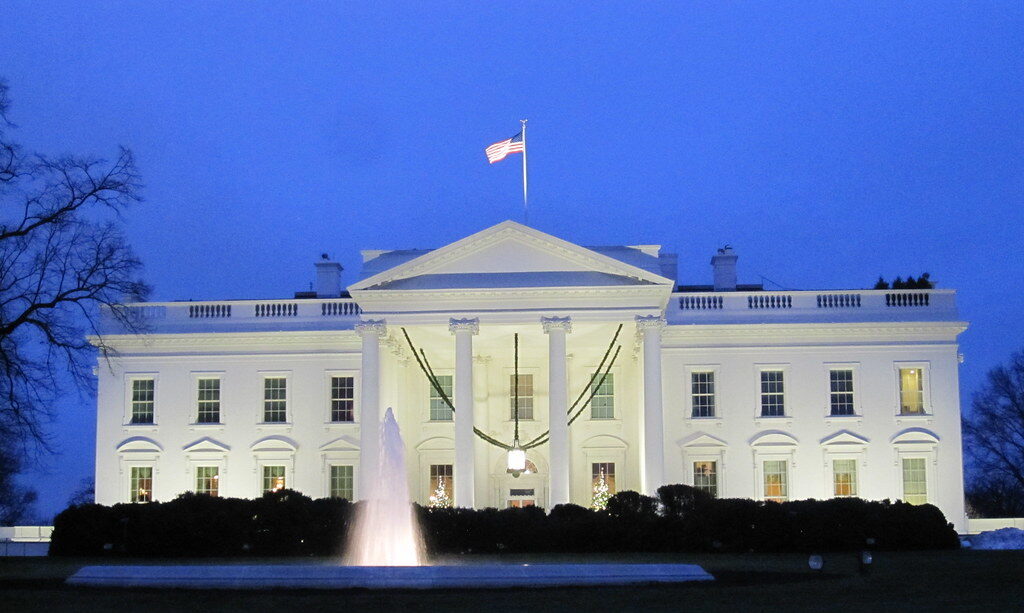Key takeaways
- The Stop Ballroom Bribery Act is sponsored by Senators Elizabeth Warren and Robert Garcia
- It aims to oversee private donations for President Trump’s White House renovation
- The bill bars gifts from anyone with business before the government and demands donor names
- The new East Wing ballroom will cost about $200 million from Trump and “patriot donors”
- Democrats warn the project could turn into a pay-to-play scheme for political favors
President Trump plans a new ballroom in the East Wing. He and “patriot donors” will fund the $200 million project. However, Democrats fear hidden gifts could sway government decisions. In response, Senator Elizabeth Warren and Representative Robert Garcia introduced the Stop Ballroom Bribery Act. The bill aims to bring sunlight to every dollar behind the renovation.
What is the Stop Ballroom Bribery Act?
The Stop Ballroom Bribery Act seeks clear rules on White House donations. It would ban gifts from businesses or people who have deals with the government. Moreover, it would bar donations from those facing federal lawsuits or investigations.
Supporters say this measure would close a loophole in current law. At present, private money can help cover costs of the White House. Yet, there’s little guardrail against influence or secrecy. Consequently, Americans worry a special ballroom could turn into a way to buy favors.
Why Democrats Back the Act
Senator Warren warned that hidden donations raise big ethical questions. She said Americans should not wonder if donors expect policy perks in return. Moreover, Connecticut Senator Richard Blumenthal argued that the White House already looks for sale. He called Trump’s ballroom plan a “vanity project” fueled by special interests.
Meanwhile, Representative Garcia pointed out that transparency builds trust. He noted that public buildings should not rely on secret checks. Instead, he added, every gift to a government site must stay out in the open.
How the Stop Ballroom Bribery Act Works
First, the bill would ban any private donation from someone with pending government business. This includes companies bidding on federal contracts or individuals in enforcement actions. Second, it would stop donors from hiding their names. All contributors must appear on a public list.
Furthermore, the act forces a two-year cooling-off period. During this time, donors cannot lobby the federal government. Finally, it prevents donor names from ever appearing on the ballroom itself. So, no plaques or engravings would honor big givers.
White House Reaction
The White House says the ballroom will honor history while adding a grand event space. Chief of Staff Susie Wiles praised the president’s builder instincts and attention to detail. In their statement, the administration said the Secret Service will handle security upgrades.
They stressed that “President Trump, and other patriot donors, have generously committed the funds” for the ballroom. Yet, the White House did not outline how they will guard against potential influence.
Possible Debate Ahead
Opponents of the bill claim it would overstep by limiting private charity. They argue that generous Americans have long helped preserve historic buildings. Moreover, they say private funds can speed up needed repairs that taxpayers may delay.
On the other hand, supporters insist that the government must stay free from hidden back-room deals. They believe that clear rules will avoid scandals and keep the public trust. As the bill moves through committees, both sides will share data on past donations and influence.
What Comes Next?
The Stop Ballroom Bribery Act will face a vote in the House Oversight Committee. Then, it must pass the full House and Senate. If it becomes law, the White House must reveal every donation for the ballroom project. Otherwise, the project cannot proceed with private funds.
Given the divided Congress, it may take months of debate before we see final action. Meanwhile, the administration could delay the ballroom until rules settle. For now, both sides agree the ballroom plan shines a light on a bigger question: Who pays for public spaces, and how transparent should they be?
Frequently Asked Questions
What problem does the Stop Ballroom Bribery Act solve?
The act aims to stop secret donations that could influence government choices. It forces donors to be public and bans gifts from people with government business.
How would the act change current donation rules?
It bars private checks from anyone with pending contracts or legal cases against the government. It also forbids anonymous gifts and sets a two-year no-lobby period.
Why is the new White House ballroom controversial?
Critics worry it might become a way for donors to win favors. They say private funding for a presidential project needs clear oversight.
Could the ballroom project proceed without the act?
Yes. The White House can use private funds now, since no new law blocks it. But the Stop Ballroom Bribery Act would force them to follow strict transparency rules.
